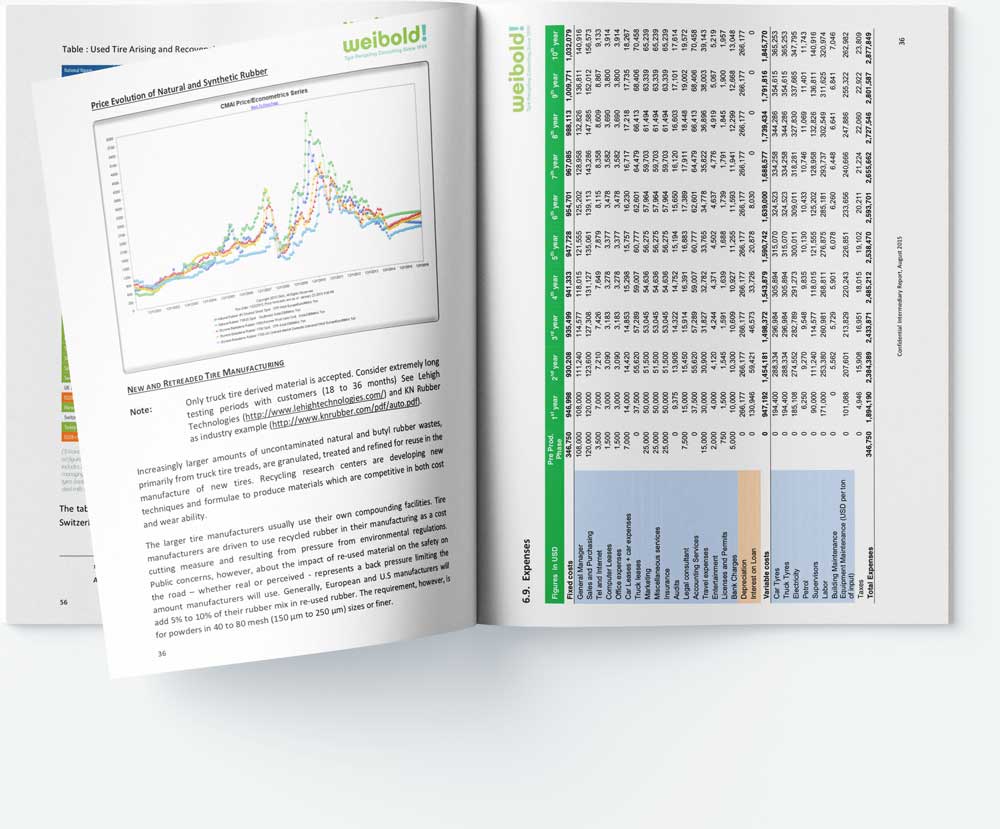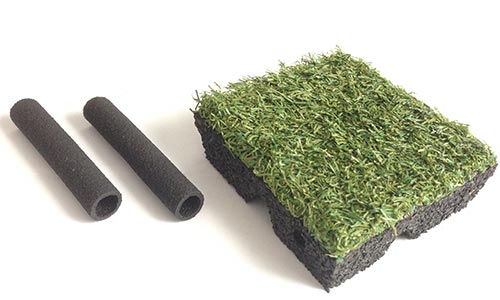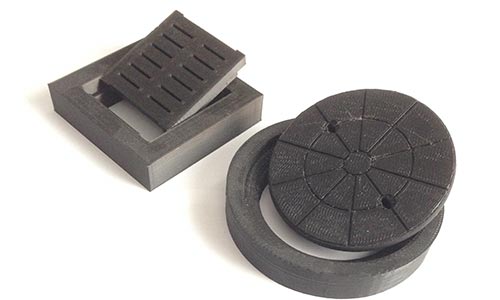
Tire Recycling Consulting
Pyrolysis Consulting
Shop
Webinars
Used Equipment
Advertising
News Events FAQ About Us Contact Search
News Events FAQ About Us Contact Search
Tire Recycling
Finding suitable granting organizations requires skill and know-how. Furthermore, submitting compliant applications is a tedious and time consuming task. Weibold’s support module helps free resources and increases the chances for acceptance.
Switch to tire pyrolysis
Opportunities may exist to subsidize your tire recycling project with funds from an international agency or local agency that draws on international pots. Some research grants may also be available. The purpose of this consulting module is to determine the chances for your tire recycling project being accepted and – if deemed reasonable – give support by preparing and submitting the requisite application documents.
Pre-requisites for this module are a clearly written business plan and financial plans to be made available by the client.
Finding the proper subsidy granting entities whose requirements your tire recycling project can meet is a cumbersome process. In addition, applying and submitting all material is a specialized and time consuming process. Weibold’s module will free your resources, guarantee a professional and compliant submission, and increase your chances of acceptance.
In this Module Weibold will canvas the subsidy and grant giving landscape, with priority given to international organizations. Weibold’s multilingual team can also cover several regional opportunities in the German, Arabic, and Spanish speaking realms. Application work and onlining submissions can also be performed by Weibold personnel.
Weibold is conducting trend, market and technology studies for Clients around the globe. Our Clients include plant operators, investors, lenders, recycling associations, technology providers, and product manufacturers. Now selected cross sections of the knowledge we have collected and pooled in our research database is available for recycling strategists and operators looking for innovations and trends on specific subjects in world-wide markets.

The full-scale Bankable Business Plan gives the Client a detailed industry description and outlook, inform about existing and future target markets, include a competitor analysis, financial modelling tool as well as information about regulations. Recycling tires into materials such as steel-free crumb rubber and fine rubber powder used to be a profitable venture; however, due to market saturation in developed economies, tire recycling companies might want to shift their focus from raw materials to potentially higher-priced consumer goods made from recycled rubber or even virgin rubber which can be replaced by tire-derived materials.

In this Pre-Feasibility Study, Weibold considers the latest developments world-wide in utilizing ELT derived textile fraction for purposes other than incineration. The work will result into a list of companies, explaining the following: a) the methods for processing, b) the technical readiness level, c) any successful references, d) logistical considerations (low weight/volume vs. capital investment), e) and to what extent this application could be applied to the Client's specific situation.

The document is both an introduction to manufacturing of sewer covers and grids made out of end-of life tires (ELT) explaining input materials, processing techniques, manufacturers, suppliers of technology, prices, materials, characteristics, life expectancy, etc. It will be based on research and preparatory work performed for the specific situation of the customer in the target area. Recycling tires into materials such as steel-free crumb rubber and fine rubber powder used to be a profitable venture; however, due to market saturation in developed economies, tire recycling companies might want to shift their focus from raw materials to potentially higher-priced consumer goods made from recycled rubber or even virgin rubber which can be replaced by tire-derived materials.